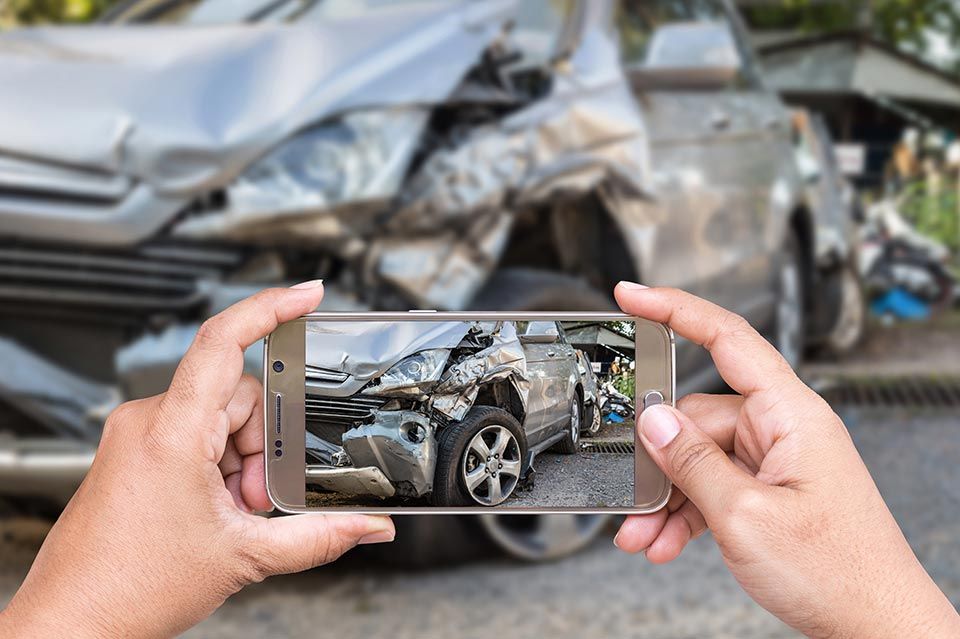What Are the Responsibilities of a Personal Injury Lawyer?
When you experience a personal injury, which can be an injury to the mind or body, it isn’t always easy to get the compensation you deserve. Figuring out who will pay for your expenses can be a huge hassle, and finding a way to get it resolved may seem impossible on your own. Though it may seem simple enough to prove your injury, this process can often become more complex and require a professional eye to investigate, prove, and argue your case.
A personal injury lawyer will assist you in receiving compensation after suffering from such an injury by doing the handwork, which involves more steps than you’d expect. Our lawyers at Warren Allen LLP serve Oregon and have experience with many types of personal injury cases. We can provide the help you desperately need during situations like this. A personal injury lawyer takes on a variety of tasks to ensure that you get the compensation you deserve. Here are a few of the responsibilities that personal injury lawyers have.
Be Qualified and Educated
Not everyone is qualified to represent you and your personal injury case. A qualified personal injury lawyer will have completed extensive education to receive their title, giving them the knowledge to navigate your situation in the smartest way possible. This includes obtaining an undergraduate degree and then going on to complete training at an accredited law school.
After obtaining both degrees, an individual will also have to take a series of tests to prove their knowledge of the law. The Law School Administration Test (LSAT), Multistate Professional Responsibility Examination (MPRE), and the bar exam are all tests that personal injury lawyers are required to pass. Depending on the state you live in, there may be even more examination requirements for your lawyer. A professional personal injury lawyer will have made these qualifications their responsibility before providing services.
Investigate the Claim
Once you hire a personal injury lawyer to take on your case, that person will be responsible for gathering the information needed to prove your right to compensation. This goes much further than a simple “he said, she said.” A personal injury lawyer will collect significant evidence to support your case. This can include acquiring surveillance footage of your accident, finding witnesses, hiring an investigator to further look into the situation, and obtaining police reports.
These lawyers will gather all the necessary information and examine it as evidence to support your case. Gathering all of this evidence can be a difficult task, but having enough of it can make the difference between winning and losing your case. A good personal injury lawyer will take this responsibility seriously and do everything in their power to gather as much evidence as they can.
Explain Your Rights to You
Not everyone is as well-versed with the law as a personal injury lawyer, and that’s okay. The education that a personal injury lawyer receives gives them more knowledge than the average person about the law, which can be a relief when you aren’t sure about what rights you have regarding your personal injury. The law was created to protect individuals in situations like this, but it’s up to your team to know which laws can protect you.
It’s your lawyer’s job to explain to you what rights you have regarding your personal injury as well as the compensation you’re eligible for. Once they fully understand your case and have collected the proper evidence, your lawyer will be able to tell you what you should expect from your injury and what you’re entitled to receive because of it.
Communicate with Insurance Companies
Depending on how you sustained your personal injury, you may have to deal with an insurance company that’s in charge of your compensation. Insurance companies may not have your best interests in mind, and they may try to offer you compensation lower than you deserve. These situations can become difficult, and knowing how to properly interact with an insurance company is important.
When you have a personal injury lawyer on your side, you won’t have to worry about having discussions with insurance companies, as your lawyer will handle those interactions. They take on the responsibility of speaking on your behalf and conversing in a way that’s in your best interest. With their knowledge from other cases and education, they can work to negotiate a payment that’s fair for you. This can take a lot of stress off you and allow you to avoid potential manipulation from an insurance company.
Prepare the Client for Deposition
In many cases, a deposition is required. A deposition is the process of giving sworn evidence and can often be an intimidating aspect of a personal injury case. It’s the personal injury lawyer’s job to prepare clients for this deposition, by getting all of the facts together in an effort to produce the most honest portrayal of the events that led to injury.
Though the truth isn’t hard to tell, knowing and remembering all of the details necessary to give a full telling of your situation may take practice. Your lawyer will both prepare you for and allow you to practice giving your deposition so that it’s as complete as possible.
Represent You in Court
No one wants to have to go to trial for their case. A lawyer will do everything possible to have your case settled before it gets to that point. Many personal injury cases can be settled much earlier in the process, such as during litigation or mediation or through negotiations. Still, sometimes coming to an agreement can be a challenge and your case will have to go to trial.
If this is the case, your personal injury lawyer will have the responsibility of representing you at trial. This includes presenting the evidence they’ve obtained to a judge and maybe jury and preparing you beforehand for this experience. This situation and the instances that come beforehand are why hiring a personal injury lawyer is so important. Their expertise can get you through this process and lead you to the compensation you deserve.

